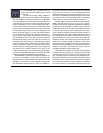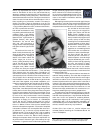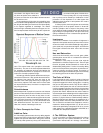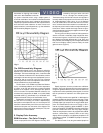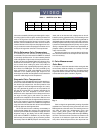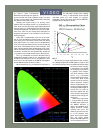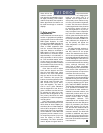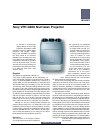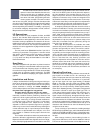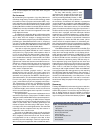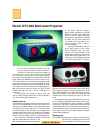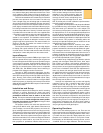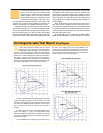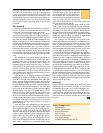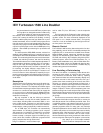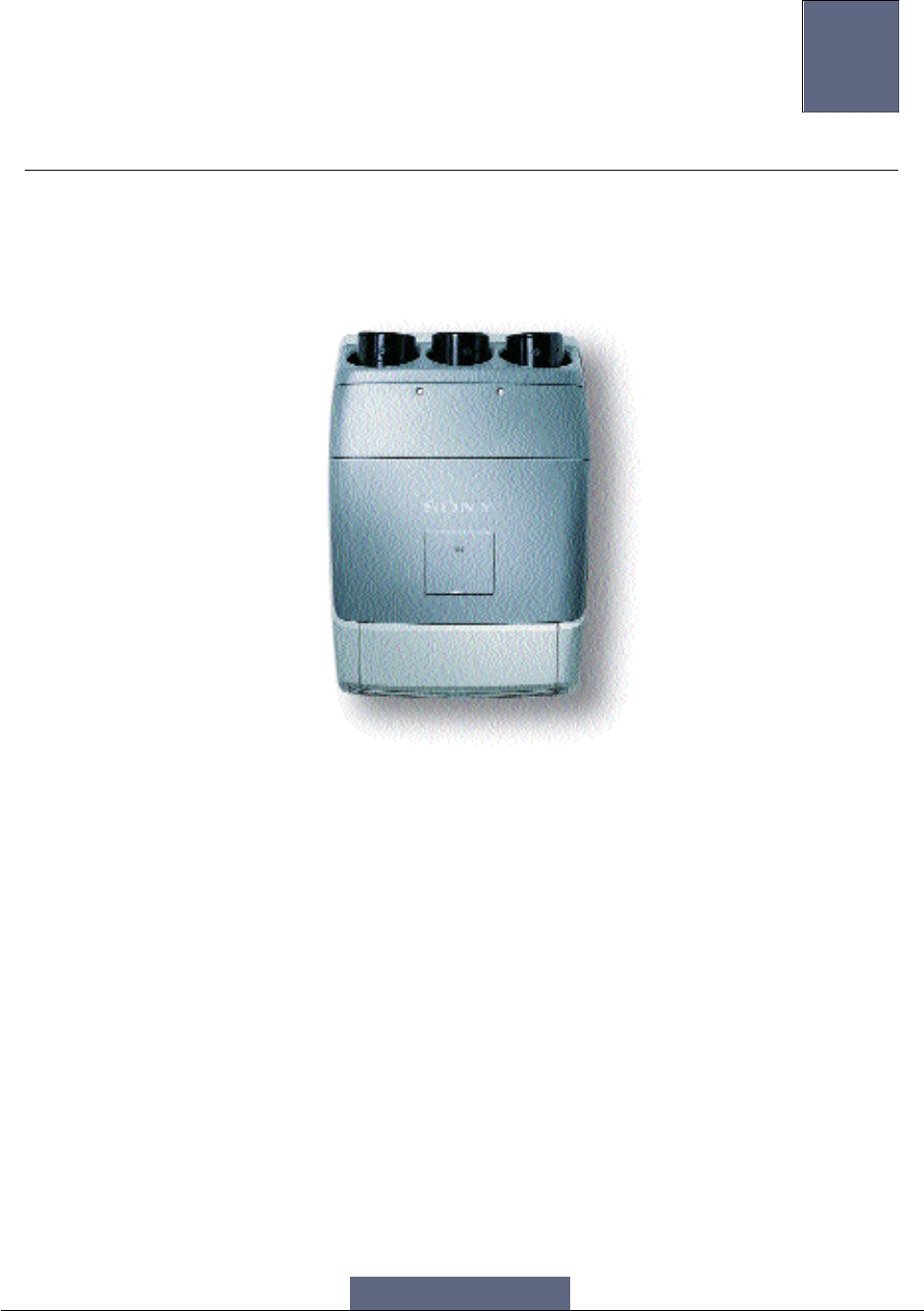
he ultimate in home-theater
display devices are the 9” CRT
projectors. Size matters in CRT
projectors because it enables higher
resolution and brighter images.
S o n y ’s new VPH-G90U has entered
this elite market at an attractive
$35,000 price to do battle with exist-
ing products from home-theater spe-
cialists Runco and Vidikron, priced as
much as 50 percent higher. The new
Sony may not be everyone’s Sony, but
home-theater enthusiasts who dream
of 9” CRTs may have come a little
closer to reality.
Physical
The G90 has a huge physical presence, not
unlike other 9” CRT projectors. At over 240 pounds, it is
one of the heaviest projectors I’ve encountered. It was deliv-
ered in a Styrofoam-padded cardboard box screwed to a
wooden pallet. It is also several handfuls, at nearly 30 inches
wide and 42 inches long. Fortunately it is only a bit more than
15 inches high, which improves handling somewhat. It is actu-
ally easier to carry and maneuver than many lighter projec-
tors because Sony has cleverly designed eight convenient and
sturdy handles into the perimeter of its case, each pair look-
ing a bit like bicycle handlebars. They pull outward from each
side of the projector and lock in place for use, then retract
back into the case, out of the way, when not needed. This
made it easy for four men to carry the projector up a flight of
stairs, and for two men to lift it into place on a sturdy table.
Although its case isn’t aerodynamically designed and
painted a bright racing color, it is sculptured to look quite
handsome in two-tone gray for ceiling or “tabletop” mounting.
For this review, I mounted it on a table below a ceiling-mount-
ed Runco IDP-980 Ultra. So I can’t relate to you the experi-
ence of lifting and attaching it to a ceiling, but I’m certain
those handles would have played a critical role.
Description
The front panel of the projector contains
only an IR remote control sensor. Above that
the huge 9-inch lens assemblies
protrude several inches in front of
the angled bezel, proudly pro-
claiming that this is one serious
projector. Just behind the lens-
es, the top panel swings open to
allow an installer to make
mechanical focus and one-time
aiming adjustments of the CRT-
lens assemblies. This is particu-
larly nice since the main cover of
the case remains closed, protect-
ing the electronics. The user
should never need to access or
repeat any of the mechanical
adjustments. All of the inputs,
power receptacles, switches, and
status indicators are located on the rear
panel. There are also two slots in the rear panel
for optional video input/output boards.
The top cover has a sliding door that conceals a complete
duplicate of the external remote control, only fixed perma-
nently in place and running off the projector’s power. This
makes it convenient, especially in a tabletop installation, to
use this panel for set-up. It also ensures that the user will have
complete access to all projector controls should you tem-
porarily misplace the remote.
The external remote is an almost square panel, about six
inches on a side, but quite thin for easy holding. A button on
the top edge turns on backlighting for all of the panel labels.
All of the controls are nicely grouped and logically laid out.
Two rows of calibration keys at the bottom can be covered by
a sliding plastic panel. They are also disabled unless unlocked
by a sequence of key pushes so that curious fingers can’t acci-
dentally disturb their settings. On-screen displays provide
numeric feedback for all the variable settings and status mes-
sages. What I like most about this remote is that all calibration
and normal usage functions have dedicated keys. On-screen
menus are provided for functions that are seldom used, such
as setting up the sync signal selections, or for obtaining status
displays of incoming signals. We so often criticize remote con-
trols that I want to acknowledge when one is
done this well.
R E V I E W S
Sony VPH-G90U Multiscan Projector
G R E G R O G E R S



